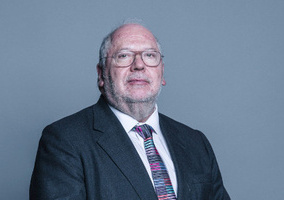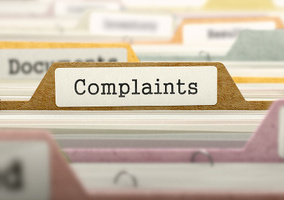Complaints at large fundraising charities increased by 14% last year, according to new research, with those at RNLI almost doubling.
Civil Society News’ analysis found complaints at 47 of the largest fundraising charities increased from 12,116 in 2020-21 to 13,843 in 2021-22.
Nonetheless, this was still below pre-pandemic levels. In 2018-19, the same 47 charities altogether had 16,949 fundraising complaints. This fell to 15,091 in 2019-20.
Charities said the rise in complaints last year was due to the return of face-to-face fundraising and in-person events as well as their relationships with third-party organisations.
Most complained about charities
Civil Society News has analysed data available from 50 of the largest fundraising charities for the past four years.
Some 48 of the original 50 charities responded to the latest research, with 47 providing data for all four years since 2018-19.
Out of the 48 charities that gave data for 2021-22, there was an even split between those that had seen an increase or decrease in complaints.
While 24 charities saw negative feedback fall last year, 24 saw it rise. Two could not provide up-to-date complaints data – Plan International UK and the Woodland Trust.
Woodland Trust had previously reported a relatively high number of complaints – 1,963 in 2018-19 and 1,780 in 2019-20. The charity told Civil Society News it does not hold any complaints data for the last two years due to the effects of the pandemic and a large data incident that occurred in December 2020.
For the fourth year running, Macmillan Cancer Support was the most complained about charity.
In 2021-22, Macmillan received 3,771 fundraising complaints, an increase of 18% on the year prior.
A spokesperson for Macmillan told Civil Society News it received 2,841 fundraising-only complaints in 2020-21, 4,009 in 2019-20 and 3,170 the year before that.
Macmillan’s fundraised income was £210.0m according to its accounts for the financial year ending December 2021. Donations and legacies accounted for 91% of its total income of £230.7m.
In its annual accounts, Macmillan states it also monitors negative reactions to its fundraising communications on social media. In 2021, the charity received 9,000 expressions of dissatisfaction to its social media posts.
According to its accounts, it said most of the negative feedback it received was from people who felt the charity could have done more to support their fundraising efforts.
“The other main areas of complaint focused on communication errors and concerns that products or campaigns were insensitive”, the accounts read.
The majority of complaints the charity received were via social media. Like last year, its Sober October campaign received the most complaints, but this figure decreased in comparison to other years.
Claire Rowney, executive director of fundraising, marketing and innovation at Macmillan, said the cancer charity is “extremely diligent” in its reporting and says feedback helps them to understand more about its supporters.
“We receive complaints through our supporter care team and also log any ‘expression of dissatisfaction’ on owned social media channels and paid advertising as a complaint. This is why the number of complaints seems higher, but it allows us to hear more from our supporters. The move was supported by the Fundraising Regulator, however, not all charities follow this in their reporting.
“When comparing complaints from 2020-21 to the most recent figures, the increase in numbers reflect an uplift in activity taking place across our fundraising portfolio, resulting in subsequent growth in complaints. The ratio of complaints to customer contacts, however, remains static.”
Other most complained about charities
Cancer Research UK (CRUK) was the third most complained about charity, the same as the year before.
CRUK saw its complaints increase by 58% for the year ending March 2022 (from 524 to 830).
Its accounts read that this rise is “in line with the reintroduction of fundraising activities”.
The leading cancer charity had the highest total income of our sample. For the financial year ending March 2022, CRUK had a total income of £668.3m. Some 67% of this was fundraising income.
However, the charity’s complaints have not returned to post-pandemic levels, as CRUK saw 1,030 complaints in 2018-19 and 1,238 in 2019-20.
Increase in complaints due to return of face-to-face fundraising
Great Ormond Street Hospital Charity (GOSH), the third most complained about charity in the sample, saw its complaints rise by 45% on the year prior, according to its accounts ending March 2022 (from 465 to 676).
The charity said this was “directly attributable” to the increase in face-to-face fundraising activity that has occurred during that financial year.
GOSH explains it ran seven new campaigns between April 2021 to March 2022, and clarified that while complaints overall increased “the ratio of complaints to fundraising activity has slightly decreased from the previous year.”
RNLI complaints almost double
Fundraising complaints to the RNLI increased by 72% on the year prior, from 639 in 2020-21 to 1,105 in 2021-22.
A spokesperson for the charity said: “The RNLI saw a rise in fundraising-related complaints in 2022. There were a number of reasons for this increase, and we are taking action based on the feedback that we have received.
“We are committed to ensuring our supporters receive the best possible experience through all of their interactions with us.
“The RNLI's vital lifesaving work is only possible due to the generosity of our incredible supporters and we are so grateful for their support.”
The charity received backlash in 2021 for rescuing asylum seekers at risk of drowning as they crossed the Channel. The former UKIP leader Nigel Farage called the charity a “taxi service for illegal immigration”.
Prince’s Trust cites Omaze partnership as reason for rise in complaints
The Prince’s Trust saw its complaints rise from 18 to 29 year-on-year.
Its accounts ending March 2022 cite its involvement in a house prize draw as the reason for the increase.
Its accounts read: “The increased volume is a result of our continued participation in the Omaze free prize draw in the first part of 2021-22.”
Civil Society News contacted Prince’s Trust for comment but did not receive a response.
Omaze is a private company that conducts prize draws for million-pound houses in luxurious locations as well as cars, cash and more. Its business model states 80% of net proceeds of every house prize draw go to charity.
Teenage Cancer Trust has also worked with Omaze but told Civil Society News it only received one complaint related to its partnership with the company.
BHF has also worked with the company. It said: “We have been Omaze’s valued charity partner for the London II House Draw since December 29, 2022. So far, we have had a very small number of complaints about the campaign. In the context of the millions of people we interact with every year, we receive very few complaints, and the vast majority of people have extremely rewarding experiences.”
Last May, Gerald Oppenheim from the Fundraising Regulator said the organisation had received a rise in complaints. He suspected this was due to an increase in online fundraising and prevalence in prize draw and lottery adverts.
Least complained about charity only had one complaint
The least complained about charities in our study were, in ascending order, Westminster Roman Catholic Diocesan Trust, Jewish Care and World Vision UK.
Westminster Roman Catholic Diocesan Trust received the least fundraising complaints last financial year, too, receiving only six complaints for 2020-21. For 2021-22, the charity only received one complaint.
A spokesperson from the church charity told Civil Society News its one complaint was a result of a “mailing mix-up” it said.
“Our team was able to investigate and clarify what had happened, and the supporter was appreciative of the diligence involved in their response.”
Animal charities receive fewer complaints
Animal charities fared better than most in the sample, being among the least complained about. Dogs Trust, Cats Protection and Donkey Sanctuary featured in the 10 charities with the least fundraising complaints.
Regardless, some did see a rise in complaints. Dogs Trust saw its complaints rise from 27 to 46 on the year.
Its accounts state that “a complaints log is maintained and monitored, and we keep a close eye on the pattern of complaints so improvements to our services can be made.”
Related articles












